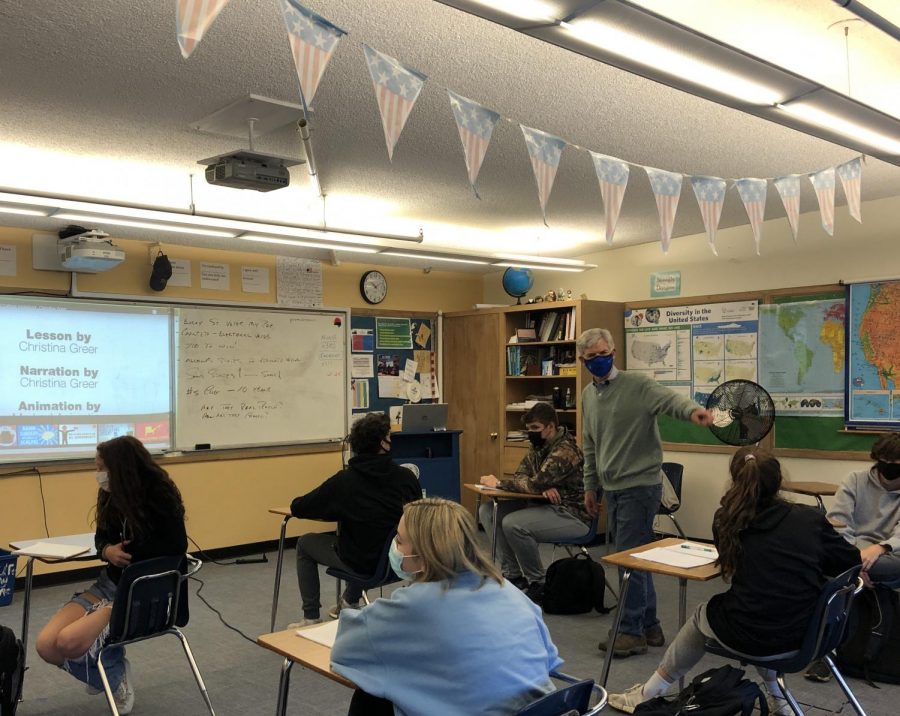A New Classroom: How Opinions Change the Learning Experience
SHS history teacher Richard Kermond engages students online and in person
October 27, 2020
Over the past five years, America has become a divided nation. The feeling of division has only heightened within the last few months through COVID-19, the presidential election, and the focus on racial injustice. In SHS classrooms, keeping politics out of teaching and learning can reduce the tension that has been rising–especially following the Presidential debates. However, classroom discussions about political issues are also necessary, as they offer students an opportunity to express their opinions and perspectives. During this contentious election season, students and teachers alike acknowledge the struggles and benefits of conducting political discussions in the classroom.
You may find that discussions in many SHS history classrooms have been focused on current events. The upcoming election will hold weight in our nation’s history, providing an excellent opportunity to analyze our country as a whole. In every classroom, you may find students with varying views and interest in the current political landscape, causing clashes of opinions.
SHS junior Brett Dupont feels “more uncomfortable” sharing during moments of discussion regarding current events this year than many other years. Dupont is trying to stay away from “going fully political and upsetting people,” a common trend amongst teens on social media and in class. Dupont’s feelings are caused by the continuing arguments between students and politicians alike erupting from the fiery political climate. After the upcoming election between Donald Trump and Joe Biden, Dupont feels the tension will “die down.”
Some students acknowledge the importance of debating in class, such as Junior Ella Daraskavich, who says, “It helps people be able to communicate their ideas, which is important.” She is aware of the danger of clashing opinions and the importance of sharing information during these monumental times. The duality of learning in these tough times creates an interesting class that is tense–yet fruitful–in opinions.
In SHS teacher Richard Kermond’s history class, students are beginning a civics unit, which includes discussions about how government “works.” In these times, Kermond is trying to teach his students how to “be civil and be able to debate with facts more than emotions.” Kermond is trying to help students understand differing points of view during a debate–including trying to mitigate animosity amongst students who identify with different political backgrounds. Kermond is aware of how passionate and outspoken his students can be, and he is trying to get students to consider other people’s reasoning and backstory for why they argue on the side that they choose.
The election season has been the center of attention, with English classes studying the rhetoric of debates, and history classes talking about connections to the past. The eyes of the country will be on the polls and candidates until the November 3rd election day. At the end of this election season, it remains to be seen if the tensions and anger toward people with differing viewpoints will fade.










